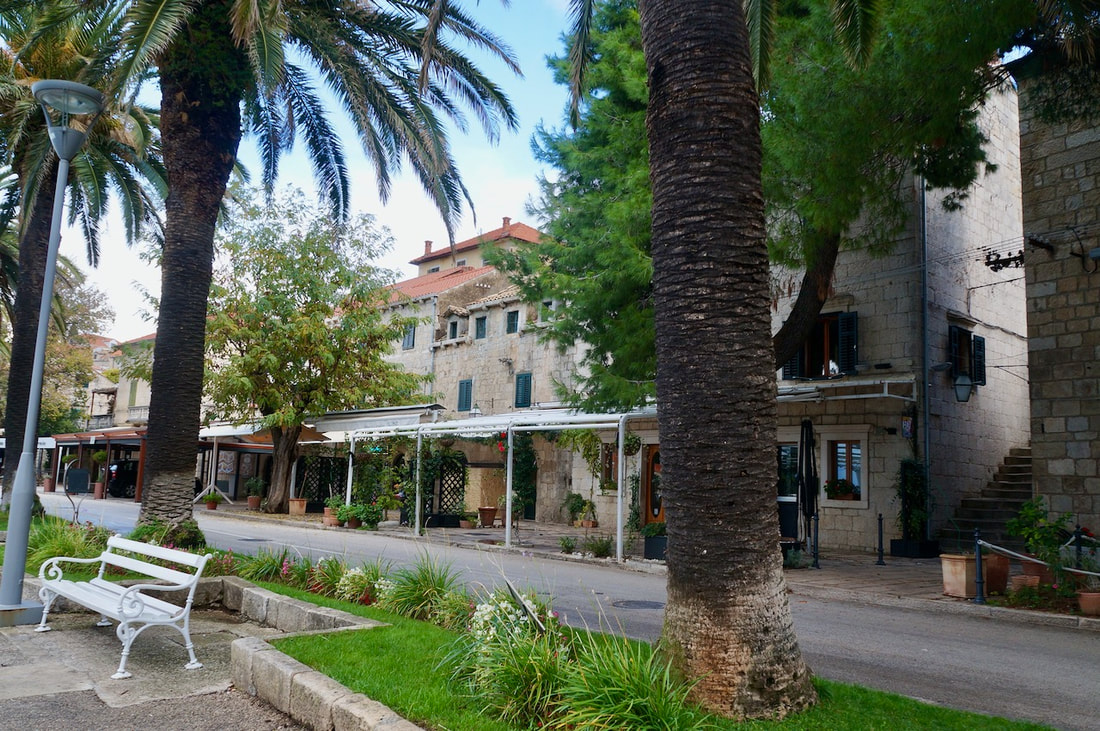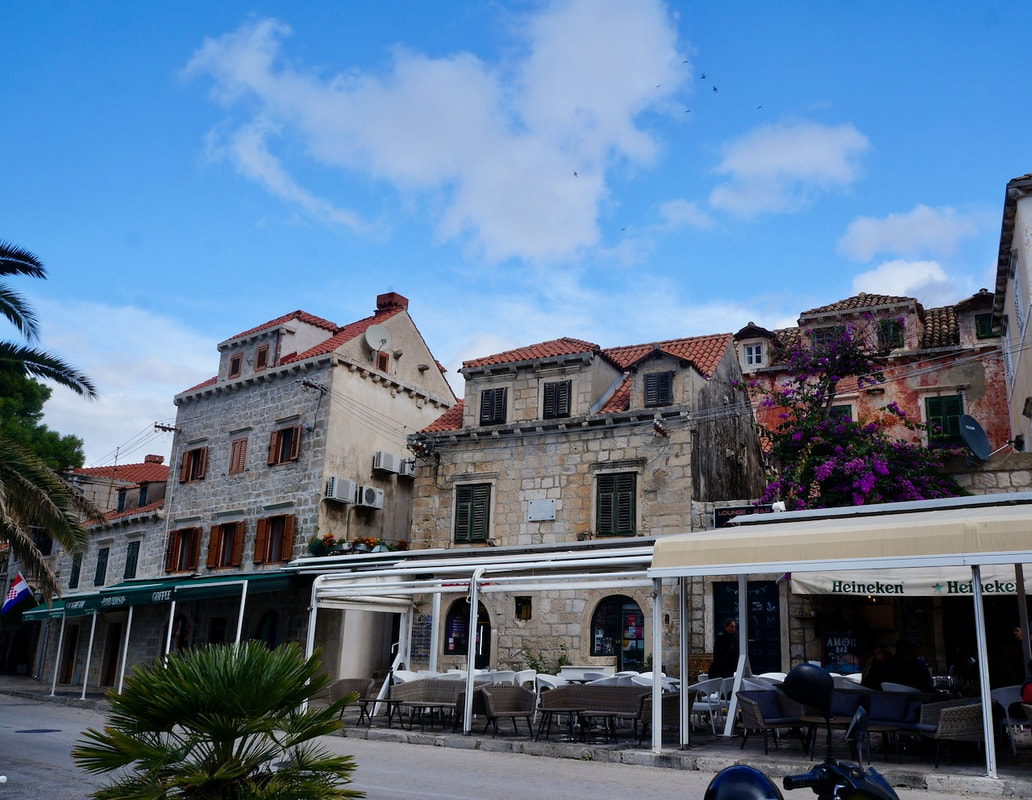Off-Season Travel Challenges: What to Expect When the Crowds Disappear
While there are certainly benefits to traveling during non-peak times, it's essential to be aware of the potential challenges that come with it.
For years now, I always traveled during the off-season. It's winter in Canada, so whatever challenges I encounter in the countries I have chosen, the thought of the cold days in Canada makes me feel cheerful. There's always a solution to every challenge, so get on your way.
For years now, I always traveled during the off-season. It's winter in Canada, so whatever challenges I encounter in the countries I have chosen, the thought of the cold days in Canada makes me feel cheerful. There's always a solution to every challenge, so get on your way.
But before you embark on your journey, here are some tips to help you navigate and address the drawbacks of off-season travel:
1. Research destination-specific limitations. Before you embark on your off-season adventure, thoroughly research your chosen destination. Understand the local weather conditions, potential closures of attractions or services, and any seasonal limitations that may affect your travel experience. This information will help you set realistic expectations and plan accordingly.
We didn't do this when we went to Split. We loved the hotel we booked, so we asked if we could again stay there when we returned from our drive to Istria. They told us we could only stay for two days because they were closing for the season and would open again in the Spring. We were a bit disappointed, but we moved on.
1. Research destination-specific limitations. Before you embark on your off-season adventure, thoroughly research your chosen destination. Understand the local weather conditions, potential closures of attractions or services, and any seasonal limitations that may affect your travel experience. This information will help you set realistic expectations and plan accordingly.
We didn't do this when we went to Split. We loved the hotel we booked, so we asked if we could again stay there when we returned from our drive to Istria. They told us we could only stay for two days because they were closing for the season and would open again in the Spring. We were a bit disappointed, but we moved on.
2. Be prepared for unpredictable weather. Off-season travel often coincides with less favorable weather conditions. Pack appropriate clothing and gear to stay comfortable and protected. Bringing layers, waterproof jackets, and sturdy footwear is a good idea to adapt to changing weather patterns and enjoy your trip despite the elements.
We went to Japan in the winter. People told us it would be cold, but we still did it. We're used to the cold anyway. To our delight, we had a wonderful time. Of course, it added much to our luggage going to the Philippines as there's no winter there, but with careful packing, it's doable.
3. Check for reduced operating hours. During low season, some tourist attractions, restaurants, or shops may have reduced operating hours or even be closed for renovations.
Visit the official websites or contact local information centers to confirm the opening hours of your desired destinations. Adjust your itinerary accordingly to avoid disappointment.
You can always choose sunny destinations if you prefer something else to this challenge. As more people travel off-peak now, establishments tend to adjust as well.
4. Keep alternative plans in mind. Off-season travel may require flexibility and a backup plan. If certain attractions or activities are unavailable due to closures or unfavorable weather, have alternative options ready.
Research lesser-known attractions, museums, local festivals, or indoor activities that can still offer a unique and enjoyable experience.
You might even be in for a surprise. You may enjoy going to many of these attractions more as there are no long lines at the entrance. You can also look at the exhibits in full view and not stand behind tall tourists craning your neck for a glimpse of Van Gogh.
We went to Japan in the winter. People told us it would be cold, but we still did it. We're used to the cold anyway. To our delight, we had a wonderful time. Of course, it added much to our luggage going to the Philippines as there's no winter there, but with careful packing, it's doable.
3. Check for reduced operating hours. During low season, some tourist attractions, restaurants, or shops may have reduced operating hours or even be closed for renovations.
Visit the official websites or contact local information centers to confirm the opening hours of your desired destinations. Adjust your itinerary accordingly to avoid disappointment.
You can always choose sunny destinations if you prefer something else to this challenge. As more people travel off-peak now, establishments tend to adjust as well.
4. Keep alternative plans in mind. Off-season travel may require flexibility and a backup plan. If certain attractions or activities are unavailable due to closures or unfavorable weather, have alternative options ready.
Research lesser-known attractions, museums, local festivals, or indoor activities that can still offer a unique and enjoyable experience.
You might even be in for a surprise. You may enjoy going to many of these attractions more as there are no long lines at the entrance. You can also look at the exhibits in full view and not stand behind tall tourists craning your neck for a glimpse of Van Gogh.
5. Embrace the quieter atmosphere. While off-season travel means avoiding crowds, it also means a more tranquil atmosphere. Some travelers may find this appealing, while others may miss the lively ambiance of peak season.
Adjust your mindset and embrace the tranquility and intimacy of a less crowded destination. Engage with locals, seek out hidden gems, and enjoy the slower pace.
I was in the north of Spain two winters ago and had a fantastic time going solo to restaurants and around the cities there. The beach in San Sebastian is lovely.
When I arrived at my hotel, the lady who checked me in chatted with me for some time as hardly anyone was in the check-in line. She told me to go and wander around, even walk on the beach as the city is safe.
That night, I had a wonderful experience walking alone on the beach and going to a bar where the waiter served me their top cider and chatted with me the whole time.
Adjust your mindset and embrace the tranquility and intimacy of a less crowded destination. Engage with locals, seek out hidden gems, and enjoy the slower pace.
I was in the north of Spain two winters ago and had a fantastic time going solo to restaurants and around the cities there. The beach in San Sebastian is lovely.
When I arrived at my hotel, the lady who checked me in chatted with me for some time as hardly anyone was in the check-in line. She told me to go and wander around, even walk on the beach as the city is safe.
That night, I had a wonderful experience walking alone on the beach and going to a bar where the waiter served me their top cider and chatted with me the whole time.
6. Consider the tradeoffs. Off-season travel offers cost savings and unique experiences, but weighing these benefits against potential tradeoffs is essential. It may be worth sacrificing ideal weather or limited operating hours for more affordable prices and a more authentic travel experience. Usually, hotels in popular summer destinations can be booked for half the price during winter.
Evaluate your priorities and choose the tradeoffs that align with your travel preferences. Please think of how nice it is to choose whatever accommodation you prefer as the occupancy is not a hundred percent. Also, to quickly find a place in a cafe to have a leisurely breakfast.
Evaluate your priorities and choose the tradeoffs that align with your travel preferences. Please think of how nice it is to choose whatever accommodation you prefer as the occupancy is not a hundred percent. Also, to quickly find a place in a cafe to have a leisurely breakfast.
By acknowledging and preparing for the drawbacks of off-season travel, you can minimize potential issues and make the most of your adventure. Awareness, flexibility, and a positive attitude will go a long way in unraveling and overcoming these challenges.
And by the way, thanks for the visit. Before you leave, please read our other travel tips:



